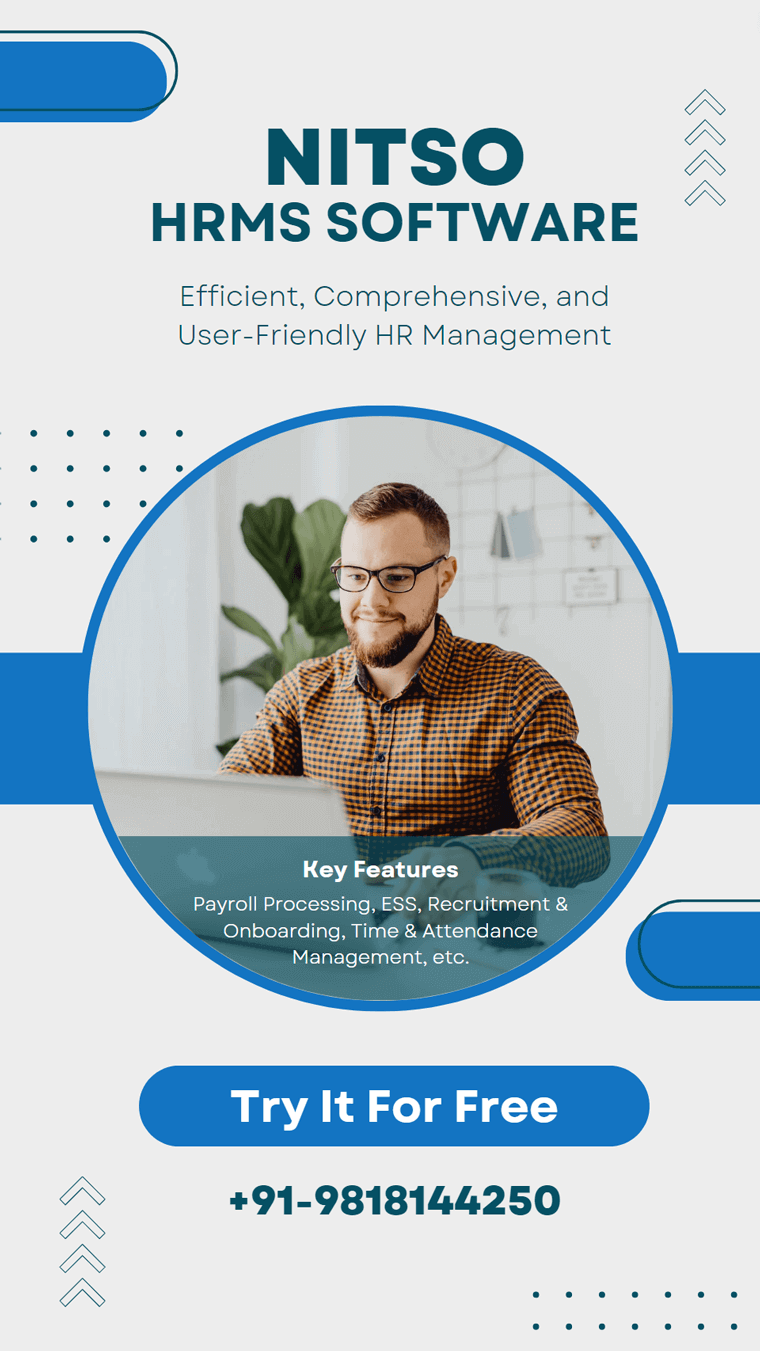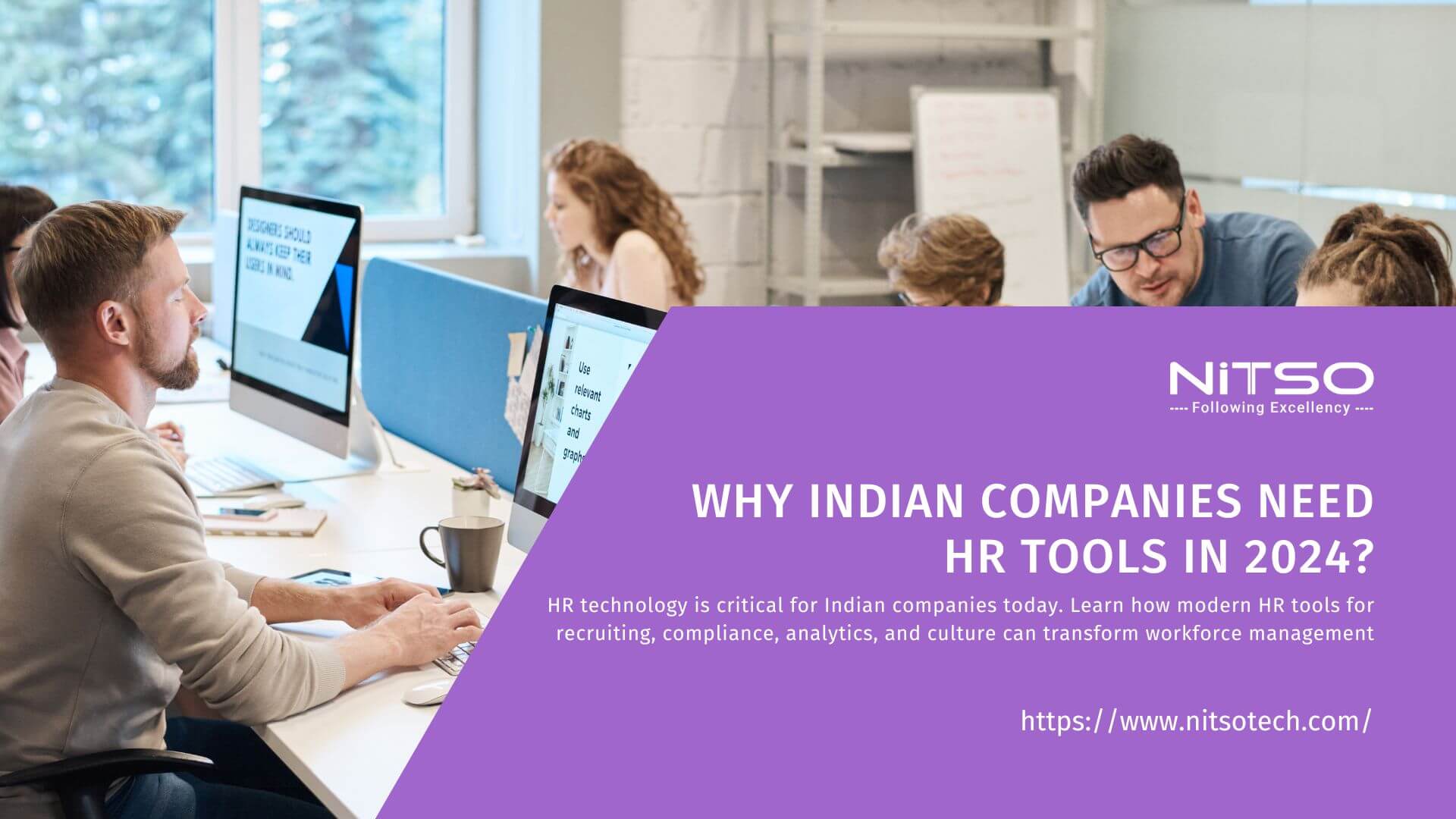Are you an HR professional in India grappling with the complexities of managing a dynamic workforce? In today’s rapidly evolving business landscape, the role of Human Resources (HR) has become increasingly pivotal for organizational success. From attracting and retaining top talent to ensuring compliance with labour laws, HR professionals face a myriad of challenges that can significantly impact a company’s productivity and profitability.
According to a recent survey by the Society for Human Resource Management (SHRM), talent acquisition and employee engagement are among the top concerns for HR leaders in India. Furthermore, navigating the intricate web of labour regulations and fostering an inclusive work culture pose additional hurdles. Effective HR management is no longer just an administrative function; it is a strategic imperative that demands innovative solutions to drive business growth and sustainability.
Content On This Page
What Major Challenges Do HR Professionals in India Face?
In the dynamic business landscape of India, HR professionals are confronted with a multitude of challenges that can significantly impact organizational performance and success. These challenges range from attracting and retaining top talent to fostering employee engagement and ensuring compliance with labour laws. Let’s delve into each of these areas in detail.
A. Talent Acquisition and Retention
- Attracting and Retaining Top Talent: India’s booming economy and rapidly expanding industries have led to a highly competitive job market. HR professionals face the daunting task of attracting and retaining the best talent, as top candidates often receive multiple job offers. Crafting compelling employer branding strategies, offering competitive compensation packages, and providing opportunities for growth and development are crucial to staying ahead in the talent race.
- Employee Turnover and Its Impact on Productivity: High employee turnover rates can be detrimental to organizational productivity and profitability. Not only does it result in the loss of valuable skills and institutional knowledge, but it also incurs significant costs associated with recruiting, onboarding, and training new employees. HR professionals must identify the root causes of turnover and implement effective retention strategies to minimize its impact.
- Skill Gaps and the Need for Continuous Training and Development: In today’s rapidly evolving business environment, the skills required to remain competitive are constantly changing. HR professionals must identify and address skill gaps within the workforce through continuous training and development programs. Upskilling and reskilling employees not only enhances their productivity but also fosters a culture of learning and growth within the organization.
B. Employee Engagement and Motivation
- Fostering a Positive Work Culture and Employee Morale: A positive work culture is essential for employee engagement, motivation, and overall well-being. HR professionals play a crucial role in creating an environment that promotes open communication, collaboration, and a sense of belonging. Addressing issues such as work-life balance, recognition and rewards, and opportunities for personal and professional growth can significantly impact employee morale and productivity.
- Balancing Work-Life Balance and Employee Well-being: In today’s fast-paced work environment, maintaining a healthy work-life balance has become increasingly challenging. HR professionals must implement policies and initiatives that promote employee well-being, such as flexible work arrangements, wellness programs, and counselling services. By prioritizing the physical and mental health of employees, companies can foster a more engaged and productive workforce.
- Recognizing and Rewarding High-Performing Employees: Recognizing and rewarding high-performing employees is crucial for boosting morale, fostering a sense of achievement, and encouraging continued excellence. HR professionals must develop fair and transparent performance evaluation systems, as well as implement attractive incentive and recognition programs to retain top talent and motivate others to strive for excellence.
C. Compliance with Labor Laws
- Navigating Complex Labor Laws and Regulations: India has a comprehensive set of labour laws and regulations that govern various aspects of employment, such as wages, working conditions, and employee benefits. Ensuring compliance with these laws can be a daunting task for HR professionals, as the regulations are often complex and subject to frequent changes. Failure to comply can result in legal disputes, fines, and damage to the company’s reputation.
- Ensuring Fair Employment Practices and Avoiding Legal Disputes: Discrimination, harassment, and unfair employment practices can not only harm employee morale and productivity but also expose companies to legal liabilities. HR professionals must implement robust policies and procedures to promote diversity, equity, and inclusion in the workplace. Proper training and communication are crucial to ensure that all employees understand and adhere to these policies, minimizing the risk of legal disputes.
- Maintaining Accurate Employee Records and Documentation: Accurate and up-to-date employee records are essential for compliance with labour laws and regulations. HR professionals must ensure that employee data, such as personal information, attendance records, performance evaluations, and compensation details, are meticulously maintained and secured. This not only protects the company from potential legal issues but also facilitates efficient HR processes and decision-making.
Navigating the complexities of labour laws and regulations can be a significant challenge for HR professionals in India. However, by staying informed about the latest legal developments, implementing robust policies and procedures, and fostering a culture of compliance within the organization, companies can mitigate legal risks and ensure a harmonious and productive work environment.
By addressing the challenges of talent acquisition and retention, employee engagement and motivation, and compliance with labour laws, HR professionals can play a pivotal role in driving organizational success. Effective solutions tailored to the unique needs of Indian companies will be crucial in overcoming these hurdles and unlocking the full potential of their human capital.
In the next section, we will explore practical solutions that HR professionals can implement to overcome these challenges and foster a thriving and productive workforce.
What are the Effective Solutions to Overcome HR Challenges?
While HR professionals in India face numerous challenges, there are effective solutions that can help organizations overcome these hurdles and foster a productive and engaged workforce. By implementing strategic workforce planning, leveraging technology for HR processes, and cultivating a positive organizational culture, companies can unlock the full potential of their human capital.
A. Strategic Workforce Planning
- Aligning HR Strategies with Organizational Goals: Effective workforce planning starts with aligning HR strategies with the overall goals and objectives of the organization. HR professionals should work closely with business leaders to understand the company’s short-term and long-term goals and develop strategies that support these objectives. This includes identifying the skills and competencies required to achieve these goals and creating plans for attracting, developing, and retaining the necessary talent.
- Forecasting Workforce Needs and Succession Planning: By analyzing workforce data and trends, HR professionals can forecast future staffing needs and develop succession plans to ensure continuity in key positions. This proactive approach can help organizations anticipate and address skill gaps, minimize the impact of employee turnover, and identify high-potential employees for leadership development programs.
- Developing a Diverse and Inclusive Workforce: Building a diverse and inclusive workforce is not only ethical but also essential for driving innovation, creativity, and better decision-making. HR professionals should implement strategies to attract and retain employees from diverse backgrounds, promote inclusive practices, and foster an environment where different perspectives are valued and respected.
B. Leveraging Technology for HR Processes
- Implementing HR Information Systems and Automating Processes: Technology can significantly streamline and enhance HR processes, from recruitment and onboarding to performance management and payroll administration. By implementing robust HR information systems (HRIS) and automating repetitive tasks, HR professionals can reduce administrative burdens, improve data accuracy, and dedicate more time to strategic initiatives.
- Using Data Analytics for Better Decision-Making: With the rise of big data and advanced analytics tools, HR professionals now have access to powerful insights that can inform critical decisions. By analyzing employee data, such as performance metrics, engagement scores, and turnover rates, HR teams can identify trends, optimize processes, and develop targeted strategies to address specific challenges.
- Exploring Digital Tools for Employee Engagement and Training: Digital platforms and tools can revolutionize the way organizations engage with and train their employees. From virtual training programs and e-learning modules to social collaboration platforms and employee recognition apps, these technologies can foster a sense of community, enable continuous learning, and enhance overall employee engagement.
C. Fostering a Positive Organizational Culture
- Promoting Open Communication and Feedback Loops: Effective communication is the cornerstone of a positive organizational culture. HR professionals should establish channels for open and transparent communication, encouraging employees to share their ideas, concerns, and feedback. Regular town hall meetings, anonymous suggestion boxes, and employee surveys can help create an environment of trust and collaboration.
- Encouraging Employee Development and Career Growth Opportunities: Providing opportunities for professional growth and career advancement is crucial for retaining top talent and fostering a motivated workforce. HR professionals should work closely with managers to identify development needs, create personalized training plans, and offer internal mobility opportunities to help employees reach their full potential.
- Cultivating a Sense of Purpose and Shared Values: A strong organizational culture is built on a shared sense of purpose and values. HR professionals should communicate the company’s mission, vision, and core values effectively, and ensure that these principles are embedded in all aspects of the employee experience, from recruitment to performance management. By fostering a sense of shared purpose, employees are more likely to feel engaged, motivated, and committed to the organization’s success.
By implementing these effective solutions, HR professionals in India can navigate the challenges of talent acquisition, employee engagement, and compliance, creating a thriving and productive workforce that drives organizational success. Continuous adaptation, innovation, and a commitment to excellence will be key to staying ahead in the ever-evolving business landscape.
How can Nitso HRM Software Help in HR Management?
In today’s fast-paced business environment, leveraging the right technology can be a game-changer for HR professionals. Nitso HRM software offers a comprehensive suite of tools and features designed to streamline HR processes, enhance employee engagement, and drive organizational success. Here’s how Nitso HRM software can help you overcome the challenges in HR management:
- Talent Acquisition and Management: Nitso HRM software simplifies the entire recruitment process, from job posting and candidate sourcing to applicant tracking and onboarding. Its robust applicant tracking system (ATS) enables you to efficiently manage job applications, schedule interviews, and maintain a centralized database of candidate profiles, ensuring a seamless hiring experience.
- Employee Engagement and Retention: Fostering a positive work culture and keeping employees engaged is crucial for retaining top talent. Nitso HR software offers a range of features to enhance employee engagement, such as employee self-service portals, recognition and rewards programs, and performance management tools. These features empower employees, promote transparency, and foster a sense of belonging within the organization.
- Compliance and Regulatory Management: Navigating the complex landscape of labour laws and regulations can be daunting. Nitso HRM software provides automated compliance tracking and reporting capabilities, ensuring that your organization stays up-to-date with the latest legal requirements. This not only minimizes the risk of non-compliance but also streamlines HR processes, reducing administrative burdens.
- Workforce Analytics and Reporting: Data-driven decision-making is essential for effective HR management. Nitso HRM software offers powerful analytics and reporting tools, enabling you to gain valuable insights into your workforce. From turnover rates and employee demographics to performance metrics and training needs, these insights can help you identify trends, optimize processes, and develop targeted strategies to address specific challenges.
- Seamless Integration and Scalability: Nitso HRM software seamlessly integrates with other business applications and systems, ensuring a seamless flow of data and information across your organization. Additionally, its scalable architecture allows the software to grow with your business, accommodating the changing needs of your workforce without compromising on performance or functionality.
By leveraging Nitso HRM software, HR professionals in India can streamline their processes, enhance employee engagement, and maintain compliance with ease. With its user-friendly interface and comprehensive features, Nitso HRM software empowers HR teams to focus on strategic initiatives, driving organizational growth and success.
Wrapping Up
In the ever-changing business environment of India, effective HR management is a crucial determinant of an organization’s success. By addressing the major challenges of talent acquisition, employee engagement, and compliance, companies can unlock the true potential of their workforce and gain a competitive edge.
Implementing strategic workforce planning, leveraging technology for HR processes, and fostering a positive organizational culture are key solutions that can empower HR professionals to navigate these challenges. Embracing a proactive and adaptive approach to HR management will not only enhance employee satisfaction and retention but also contribute to the overall growth and profitability of the company.
It is imperative for Indian companies to prioritize HR strategies and invest in developing a skilled, engaged, and compliant workforce. By doing so, they can cultivate a thriving organizational culture that attracts and retains top talent, driving long-term success in an increasingly competitive market.
Frequently Asked Questions (FAQs)
What are the major challenges faced by HR professionals in India?
The key challenges include talent acquisition and retention, employee engagement and motivation, and compliance with complex labour laws and regulations.
How can companies attract and retain top talent in a competitive job market?
Companies should focus on employer branding, offering competitive compensation and growth opportunities, as well as implementing effective retention strategies.
Why is employee engagement and motivation crucial for organizational success?
Engaged and motivated employees are more productive, have lower turnover rates, and contribute to a positive work culture, ultimately driving business growth.
How can HR ensure compliance with labour laws and avoid legal disputes?
HR must stay updated on legal changes, implement robust policies and procedures, maintain accurate employee records, and foster a culture of compliance.
What role does strategic workforce planning play in overcoming HR challenges?
Strategic workforce planning involves aligning HR strategies with organizational goals, forecasting staffing needs, succession planning, and developing a diverse workforce.
How can technology help streamline HR processes?
HR information systems, data analytics tools, and digital platforms for engagement and training can automate tasks, provide valuable insights, and enhance overall efficiency.
Why is fostering a positive organizational culture important for HR management?
A positive culture promotes open communication, employee development, and shared values, and ultimately drives engagement, motivation, and organizational success.
How can Nitso HRM software help Indian companies overcome HR challenges?
Nitso HRM offers tools for talent management, employee engagement, compliance tracking, workforce analytics, and seamless integration with other systems.
What are the benefits of using a comprehensive HR management solution like Nitso HRM?
It streamlines processes, enhances engagement, maintains compliance, provides data-driven insights, and empowers HR teams to focus on strategic initiatives.
How can HR professionals stay updated on the latest trends and best practices in HR management?
Attending industry events, networking with peers, leveraging online resources, and continuing professional development are crucial for staying current.








0 Comments